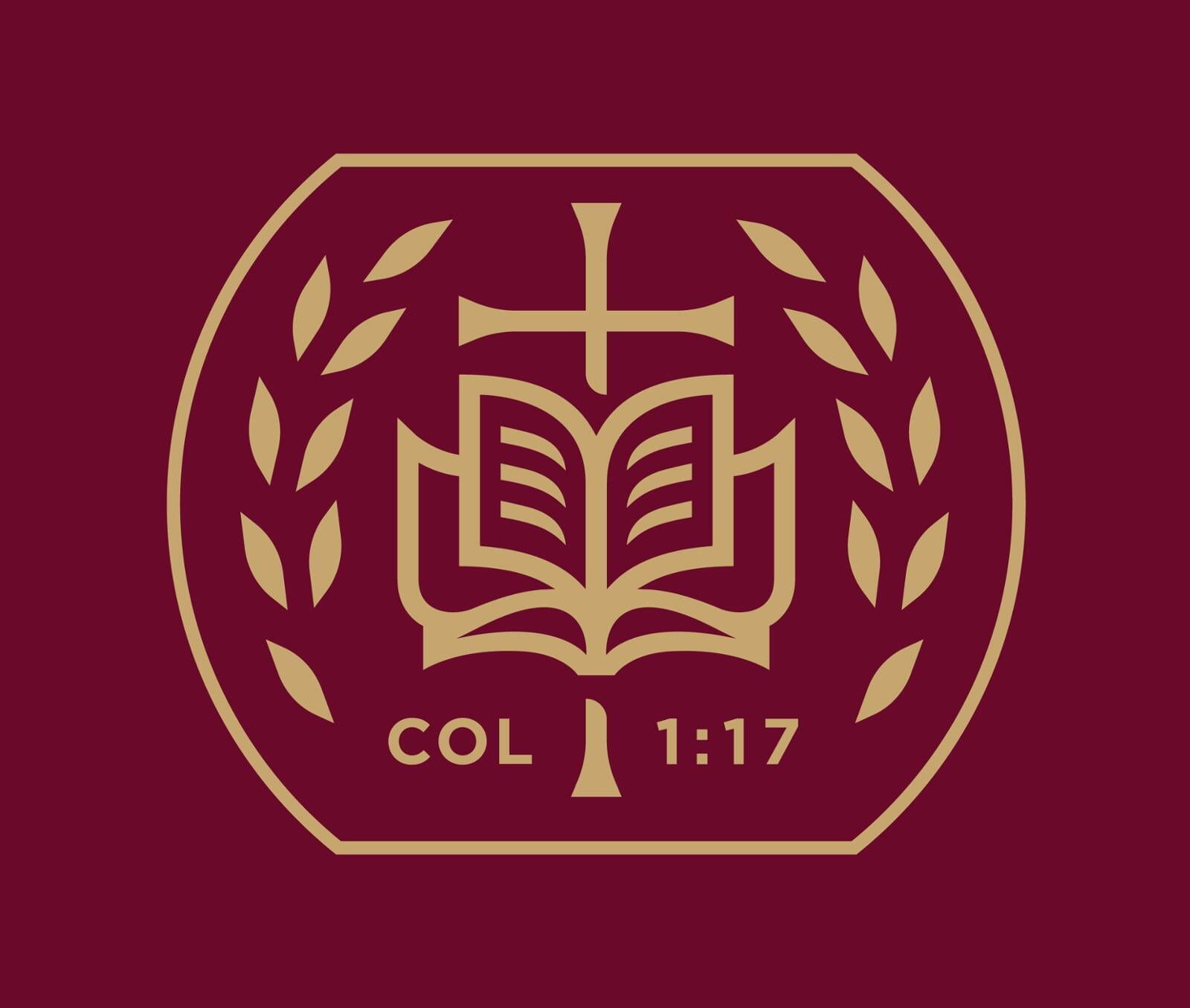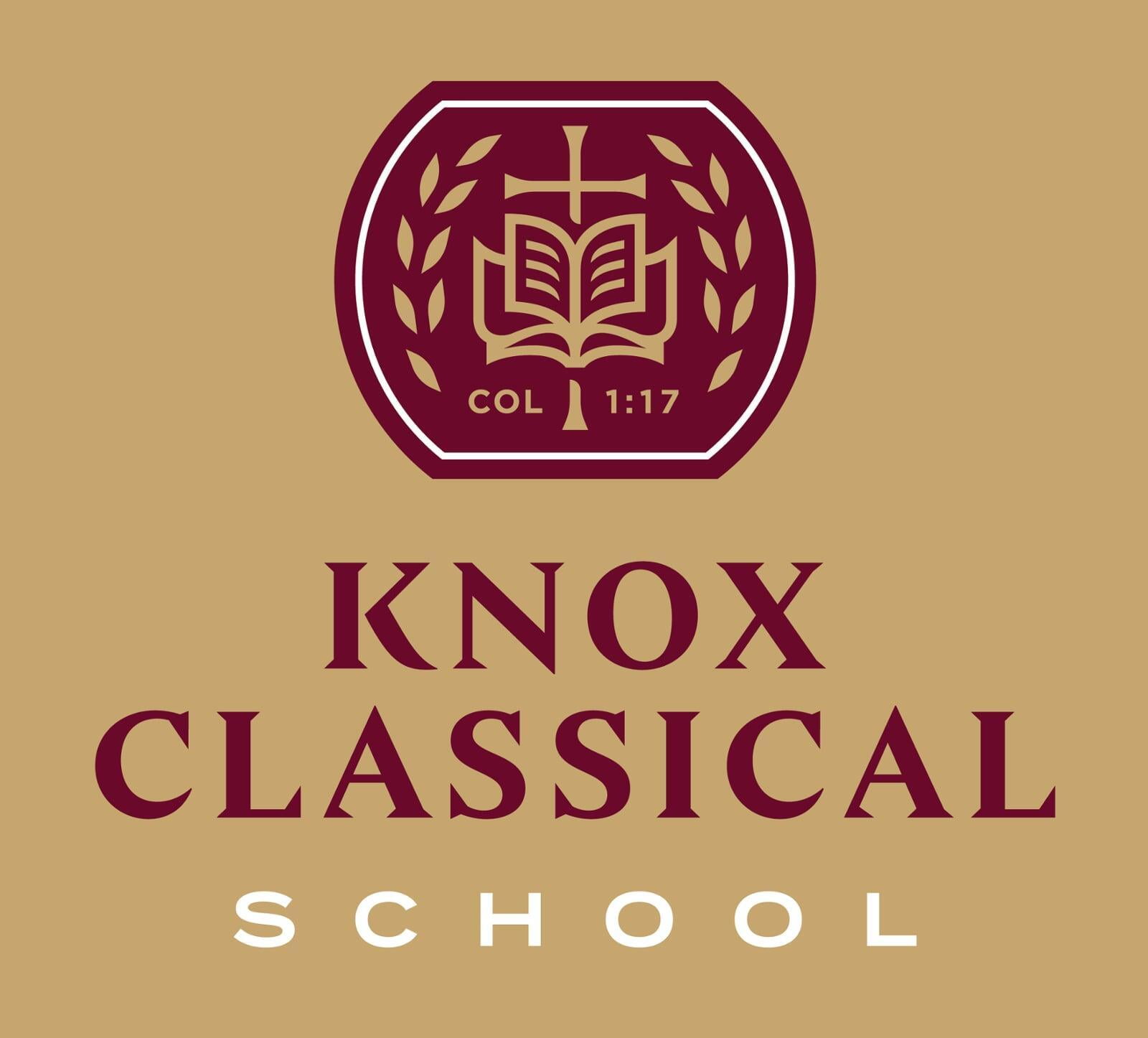Frequently Asked Questions
We strongly encourage you to join us for our next info meeting to learn more about Knox Classical School, but we hope that these answers to common questions will be helpful in the meantime.
Admissions & Tuition
We opened in fall 2024 for grades K—3, and we'll enroll students in grades K—5 for the 2026—2027 school year. Our Board of Directors is committed to adding one grade each year until we are a full K—12 school.
Application dates for the upcoming school year are available on our application process page.
Generally, students will be admitted to the grade level based on their age as of September 1. To start kindergarten at Knox Classical School, students must be five years old as of September 1.
Our heart and commitment is to do everything within our power to make this education affordable for as many families as possible, while simultaneously paying our teachers well enough that they can make a long-term commitment to our school. Our tuition and fee numbers reflect careful planning and budgeting to ensure financial stability and that we’re providing a truly excellent comprehensive education. Please visit our tuition & fees page for current numbers.
We don't offer discounts for multiple students from a single family, but we strive to keep tuition as affordable as possible.
Academics
The "liberal arts tradition" refers to the centuries-old approach to education aimed cultivating the minds, bodies, and souls of students made in God's image. The tradition encompasses not just the seven classical liberal arts (grammar, logic, rhetoric, arithmetic, astronomy, and music)—which have long been employed to promote intellectual virtue in students—but also the transmission of piety (or loving what is lovely), gymnastics (or physical strength), and philosophy—all rooted in and governed by theology, "the queen of the sciences."
This rich and robust model "presents a truly integrated Christian classical education where the intellectual tools of the seven liberal arts are formed within the context of a Christian life and moral imagination that is governed by a thoroughly Christian philosophy and theology" (Clark and Jain, The Liberal Arts Tradition). We trust that educating our students according to this time-tested tradition will incline their minds, wills, and affections toward Christ Jesus and equip them to "take every thought captive to obey [Him]" (2 Cor. 10:5).
Classical education refers to the prevailing method of educating children in democratic Greece and from the Renaissance until about 150 years ago, when educators began experimenting with modern methods that threw off traditional methods in favor of training workers for the factory—and the results on American education and morals have been disastrous.
Classical education is a method of instruction that focuses on the instillation of virtue and humility, especially by acquainting children with the development of Western civilization. Classical education produced some of the greatest minds our country has ever seen—including Washington, Adams, and Lincoln. Classical Christian education recognizes that all truth is God’s truth, and so Scripture’s insight into the human condition and the created world is foundational to a classical Christian education.
The uniqueness of classical instruction is readily apparent at the logic and rhetoric phases (approximately grades 5-8 and 9-12, respectively), where the emphasis isn’t just knowledge for knowledge’s sake (or for the sake of a standardized test) but discernment and prudent, persuasive communication of truth. At the grammar level (approximately K-4), the most apparent differences are in orientation—in that “the fear of the Lord is the beginning of wisdom,” not “self discovery” or even the world around us—and methodology, with a heavy emphasis on memorization and earnest effort to encourage a love of learning through vivid books, hands-on projects, and wide exposure to what’s good, true, and beautiful.
We believe that students from a variety of educational backgrounds—including public school, conventional private school, and homeschool—will be able to transition successfully into classical education. Much of the foundational memory work, such as the catechism, English phonograms, and the history timeline, is revisited each year of the grammar level, so incoming students will be able to learn that information beginning in any grade.
Absolutely! Our curriculum is designed to offer various "on ramps" so students who have not previously studied Latin will be able to participate fully in Latin class.
The Head of School proposes curriculum to a curriculum committee created by the Board of Directors, which votes whether to approve a recommendation. We're blessed to have a team representing decades of collective experience in classical Christian education, and we’ve curated a set of curriculum that we believe represents some of the best of the best for you and your student. To learn more about our particular selections, please attend our next info meeting.
While classical teachers are generally prepared to work with students with different abilities, Knox Classical School is not staffed to handle students with significant learning differences or disabilities, or students with significant behavioral problems. Students with significant learning differences or behavioral problems would probably not thrive at Knox Classical School due to the overall academic rigor and pace of instruction. For further information, please see our Family Handbook.
We will not seek accreditation by the state of Kansas, as that could require us to comply with state mandates that could compromise key elements of our mission and vision. We’re a member of the Society for Classical Learning, which imposes standards on its members and accredits classical schools. As we grow, we plan to seek accreditation from SCL.
Many excellent classical Christian schools aren’t yet accredited by SCL or the Association of Classical Christian Schools, another organization that accredits classical Christian schools, and most choose not to become state accredited. Because we’re committed to one day seeking accreditation, you can be confident that we’re committed to excellence at every level—teaching, curriculum, administration, and leadership.
Christian, classical, collaborative schools are flourishing throughout the country. For some examples in other cities, consider:
Collaborative Approach
No, parents are not required to be on campus on Mondays and Wednesdays, but parents and siblings are be welcome to attend our morning and afternoon assemblies.
Parents receive assignment sheets for the at-home days with exact assignments prepared by their student’s teacher. Parents aren't responsible for any curriculum development or planning, but parents are responsible for assisting their children on at-home days and expected to take a curious, intentional, and involved approach to their children’s schoolwork.
The amount of time spent on assignments on Tuesdays and Thursdays will depend on many factors, including your student's age and maturity, learning style and speed, family size, and family dynamics. Based on the experiences reported at similar classical Christian collaborative schools and the reports of families at Knox Classical, the following is a rough estimate:
- Kindergarten: 1.5 — 3.0 hours per at-home day.
- First Grade: 2.5 — 4.0 hours per at-home day.
- Second Grade: 3.0 — 4.5 hours per at-home day.
- Third Grade: 3.5 — 5.5 hours per at-home day.
- Fourth Grade: 4.0 — 6.0 hours per at-home day.
With careful planning and firm commitment to the school's philosophy of education, it's possible for both parents to work outside the home and for their children to thrive at Knox Classical School. Since Monday and Wednesday are on-campus days, some teaching parents might pursue part-time work on those days. Others might involve grandparents, relatives, or other caregivers in the at-home teaching.
At-School Days
Students are on campus on Mondays and Wednesdays and receive detailed assignments to complete at home with their parents on Tuesdays and Thursdays. Our curriculum is designed to leave Friday as a flex day at least through fourth grade, allowing families to catch up on assignments, pursue further enrichment activities, or simply enjoy time together as a family.
School is in session from 8:15am — 3:30pm on Mondays and Wednesdays.
Our goal is to keep classes limited to 12—16 students. We believe that small class sizes allow for optimal teacher and student interaction and greatest mastery of the material. We also hire dedicated art and music teachers, along with classroom aides to further support our teachers and students.
We meet at Emmanuel Baptist Church, 10100 Metcalf Ave, Overland Park, KS 66212.
We consult with local law enforcement officers to implement best practices for student safety. We train parents and students on all safety measures during Parent Bootcamp and drills throughout the year.
Yes, our uniform policy helps students embrace their vocation as students striving toward excellence, avoid social distractions related to attire, and serves as a security measure so that teachers and staff can easily identify students. We also believe that using school uniforms ultimately save parents money. Our full uniform policy is available here.
Statement of Faith & Denominational Affiliation
We are not affiliated with a particular church or denomination. Our faculty represents eight different churches across Johnson County and our families come from nearly twenty different congregations. As indicated by our Statement of Faith, we are rooted firmly in the Protestant tradition and maintain a posture of Reformed "catholicity."
No. Our theology instruction focuses on the tenets affirmed in our Statement of Faith, and parents, as the primary individuals charged by God to raise their children in the instruction of the Lord, are responsible for any other matters of doctrine. For further details, please see our policy regarding secondary doctrine in our Family Handbook.
To maintain a distinctively Christ-centered community at Knox Classical School, our board members, faculty, staff, both custodial parents of every student, and students grades 7-12 are all required to sign a statement affirming that they agree with and abide by our Statement of Faith.


